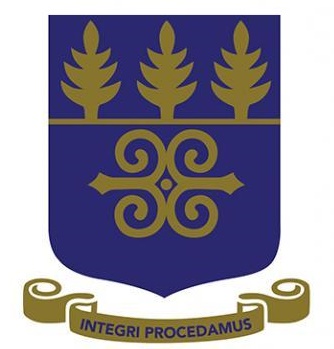KISW 104 2 Credit Hours
Elementary Kiswahili Grammar II
This information is for second semester 2017/2018 academic year
Teacher responsible
Dr. Sarah Marjie-Okyere
Availability
This course is available open to all visiting students but only as a second semester course. It is advisable for students to take this course only after they have taken a semester of Kiswahili courses.
Course Content
This course is a continuation of introduction to Kiswahili Grammar with the introduction of additional elements of the Sentence in Swahili. Students will be introduced to more areas of Kiswahili grammar such application of basic adjectives, negation of basic tenses in the affirmative in Kiswahili etc. The course will also touch on the development of Kiswahili as an academic discipline. These are designed to build students’ skills in written expression and comprehension. The objective of this course is to equip students with the tools necessary for proficiency in the four elements of basic communication skills; listening, speaking, reading and writing. It will focus on the usage and acquisition of basic grammar. It aims at building the students’ capacity in terms of vocabulary acquisition (about 1000) and grammar.
Teaching
Wednesday, 9:30 -11:30 am for 12 weeks
Teaching will be mainly interactive through question and answer formations.
1. Students will be taken through written exercises.
2. Students will be encouraged to speak in class as well as do personal studies.
Students will be given in-class as well as take- home assignments.
Formative Coursework
Student’s general performance is assessed through class participation, group presentations, written assignment, class tests and final end-of Semester Examination.
Indicative reading
Dzahene-Quarshie, J. (2014). The development of Swahili as an Academic Discipline: Contributing Factors.
In Dzahene-Quarshie, Josephine, Ildiko Csajbok-Twerefou, Joanna Boampong (eds.) Journeys Through the Modern Languages at the University of Ghana. Ayebia Clarke Publishishing Ltd: Accra (pp 63-72).
Kalfan, M.,& Mazrui, A. (2007). Swahili: A complete course for beginners (Spoken World).
Berlin: Living Language.
Mohammed, M. A. (2001). Modern Swahili Grammar. Nairobi: East Africa Educational Press.
Paul etChacha, L. M. (2001).Mbinu za Kisasa za Kufundisha Kiswahili: Kwa Walimu wa Shule
ya Msingi, Pili na Vyuo. Nairobi: Kenya Literature Bureau.
Russell, J. (2011). Complete Swahili with Two audio CDs: A Teach Yourself Guide (TY:
Language Guides). NY: McGraw-Hill.
Senkoro, F.E.M.K. (2003). Tuseme Kiswahili/ Let's Speak Kiswahili: A Multidimensional
Approach to the Teaching and Learning of Swahili as a Foreign Language - With Swahili-English and English-Swahili. Madison: University of Wisconsin-Madison.
Assessment and Grading
Class assignments 5%
Class attendance 5%
Interim assessment 20%
End of Semester Examination 70
Grading Scale:
|
Letter grade |
Marks |
Grade point |
|
A |
80-100 |
4.0 |
|
B+ |
75-79 |
3.5 |
|
B |
70-74 |
3.0 |
|
C+ |
65-69 |
2.5 |
|
C |
60-64 |
2.0 |
|
D+ |
55-59 |
1.5 |
|
D |
50-54 |
1.0 |
|
E |
45-49 |
0.5 |
|
F |
0-44 |
0.0 |

